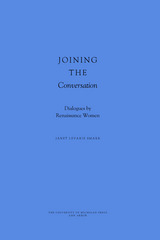Paper: 978-0-674-00375-0
With the greatest income inequality in the world, the nations of the Americas face the challenge of consolidating democratic regimes, improving productivity, and reducing poverty as they enter the twenty-first century. Educational opportunity is central to this threefold challenge.
The distinguished contributors to this volume discuss current policies and issues in Argentina, Chile, Colombia, Mexico, Peru, and the United States, as they explore the nature of the relationship among education, poverty, and inequality. The book provides impressive evidence linking school participation, the quality of education for poor children in the Americas, and the impact of education policies to promote social justice. Using both qualitative and quantitative data, the book addresses the following sets of questions: How does the education system reproduce social inequality? How does education provide opportunities for social mobility? What are the causal processes involved? What is the direction of this causation?
Linking theory and practice, the authors explore the dynamic relationship between educational change and social change, and weigh the significance of their findings for the educational chances of poor children.
See other books on: Americas | Challenges | Equal Opportunity | Gómez, Antonio Enríquez | Orfield, Gary
See other titles from Harvard University Press












